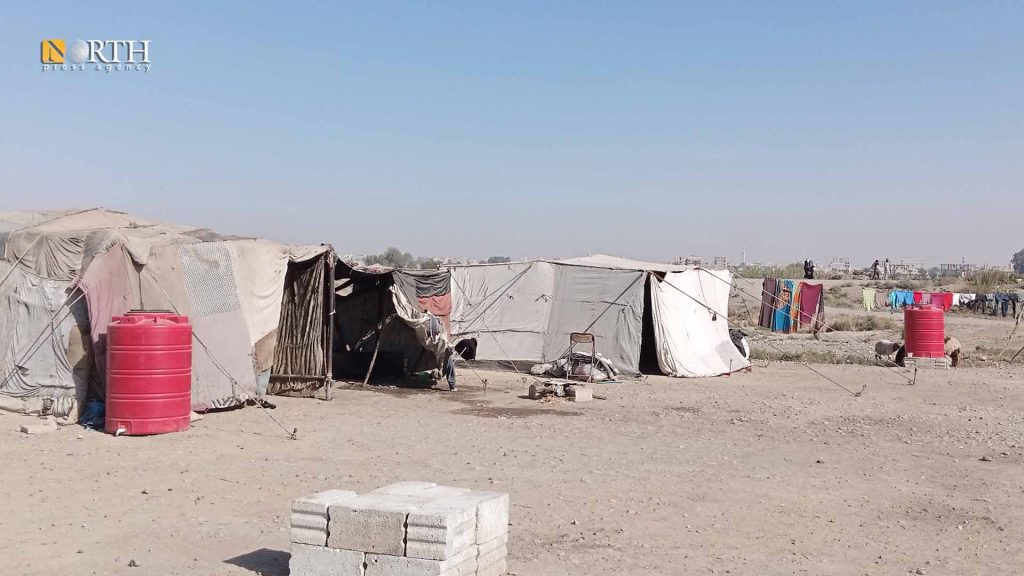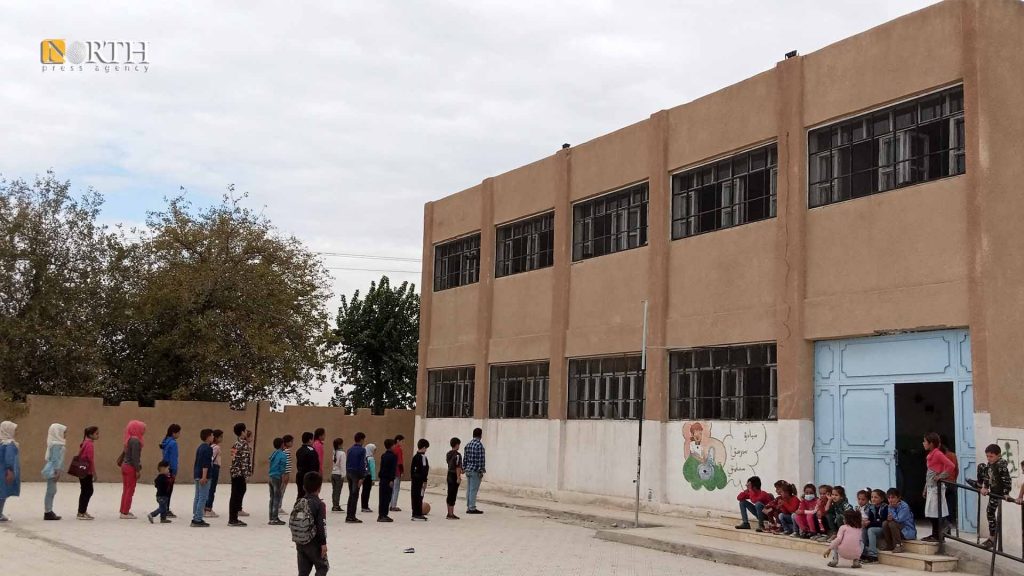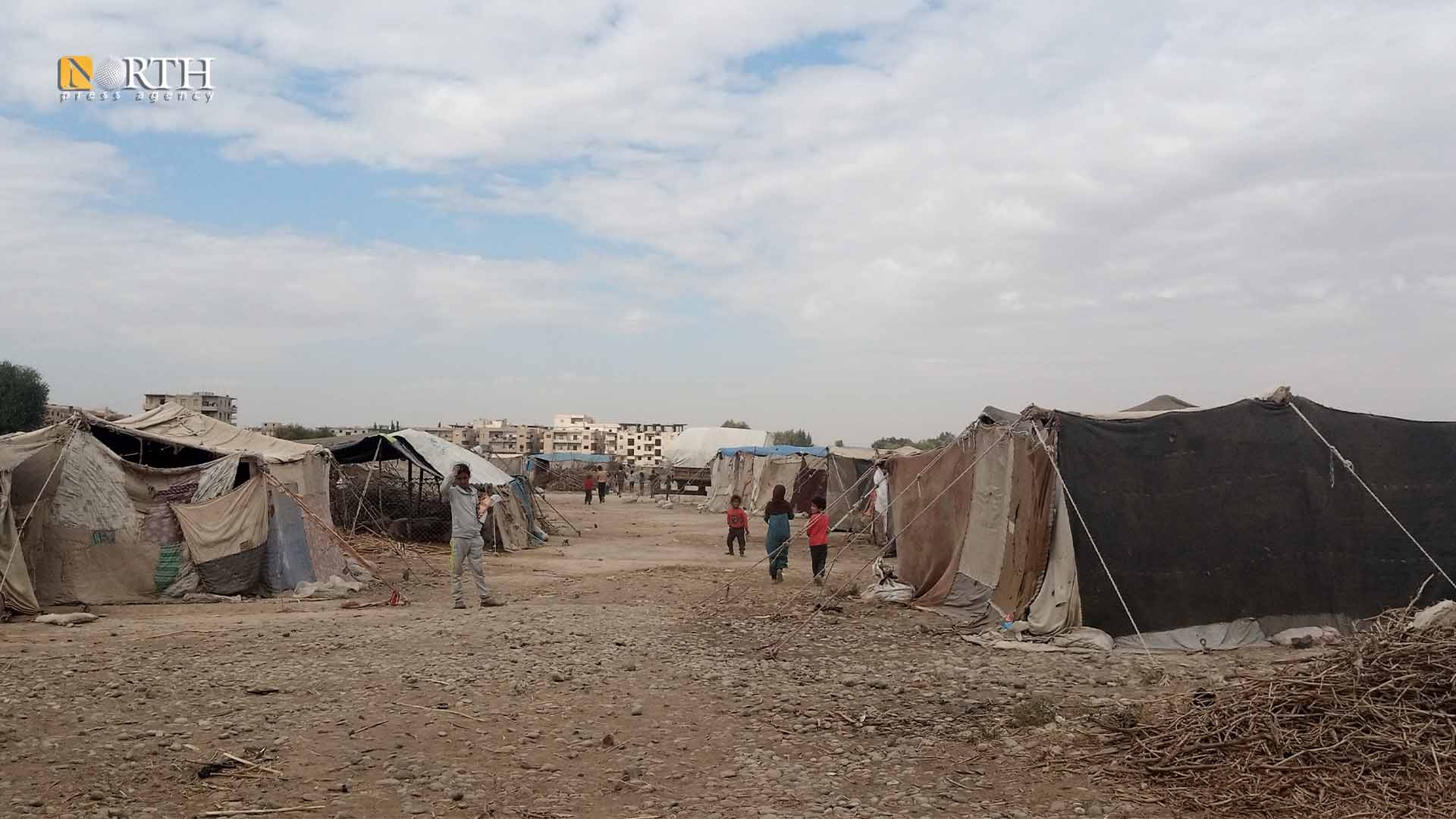RAQAA, Syria (North Press) – While standing next to his tent, the 45-year-old Abdullah al-Ali, who is residing in al-Younani Camp near the city of Raqqa, north Syria, picked an awareness brochure about coronavirus, but unfortunately the man could not read it because he is illiterate.
As a result of the successive displacement due to war in Syria, the seven children of al-Ali were not able to complete their studies and go to school like hundreds of children in the camp.
Additionally, instability and poverty that camps in Raqqa are witnessing, led to the prevalence of illiteracy among children, according to civil activists.
Al-Ali, who hails from the village of al-Rasafa, southwest of Raqqa, is residing with his family that do not know how to read or write in a tent that lacks all aspects of life.
Al-Younani Camp houses 267 families, most of them hail from al-Rasafa village and the government-held city of Homs, and about 80 school-age children, according to Sa’id al-Sa’id, a representative of the camp.

Flame of hope
“I cannot read or write, but I had a dream that my children complete their education and become educated, but war extinguished the flame of hope,” al-Ali said.
“With the beginning of the new schooldays, my children went to school, but as a result of the long distance they walked to reach the school, they got exhausted and felt tired so that I told them not to go for fear for their health,” he added.
The closest school from the camp is about two kilometers far, according to al-Ali.
Although the 35-year-old Mustafa al-Kedo, who is residing in Huwaija al-Sawafi Camp, can read and write, his 12-year-old son does not know the alphabet. All he knows is how to graze sheep and wait for mobile traders to sell scrap he collected from the landfills surrounding the camp.
However, al-Kedo refused to answer when he was asked about the reason for not sending his son to school although the school is near the camp.
“Some IDPs in squatter camps prefer to stay in those camps because the regular camps have their own rules of procedure,” co-chair of IDPs and Refugees affairs of the Autonomous Administration, Sheikhmos Ahmad, said in a previous statement to North Press.

The rules of procedure of the regular camps are inconsistent with the nature of the work of the residents of the squatter camps, because most of them work in agriculture and livestock.
Careless families
The number of students was good with the beginning of the schooldays, but days later only a few were left, Raw’a al-Hamdan, a teacher in Huwaija al-Sawafi elementary School, said.
The reason after children not attending school is the lack of attention from the parents, al-Hamdan added.
Students of the camp, who go to school, despite their small numbers, are known for their love to education in addition to their adherence to the time of the morning meeting despite the long distance between the camp and the school, al-Hamdan noted.
There are only four students in the third grade and their levels were evaluated with very good, the teacher added talking about the students’ adherence to their homework.
Turning a blind eye
The number of squatter camps in the city of Raqqa reached 58 with most of them lacking education centers, spokesman and coordinator in camp affairs with international organizations and local associations in the Civil Council in Raqqa city, Abdulnaser Hami said.
Spread of illiteracy in the squatter camps is the reason after not having education centers because there are no teachers in those camps, Hami added.
During the last period, residents and activists have appealed to international organizations and local associations to pay attention for the sake of establishing educational centers, “but no one was concerned,” according to Hami.
“I applied several appeals through the education committee and international organizations, so far, I have had no response,” he noted.

